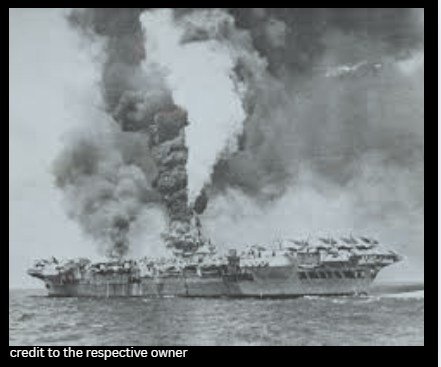When a kamikaze struck in 1945, this British warship was back in action within hours—here’s how.
On May 4, 1945, in the waters near the Sakishima Islands, HMS Formidable faced a moment that would test everything about her design.
A Japanese kamikaze pilot, in a final act of desperation, dove his aircraft directly into the carrier’s deck. The impact was catastrophic—tearing a three-meter crater into the flight deck and sending razor-sharp steel fragments ripping through the hangar below. A steam line ruptured. Fuel ignited. Fire swept across the aircraft park, consuming planes in its path.
Eight sailors lost their lives. Forty-seven more were wounded.
For most warships of the era, this would have been the end. American carriers, with their wooden flight decks, often burned for days after similar strikes. Some never returned to service.
But Formidable was different.
British naval architects had made a controversial choice years earlier: trade aircraft capacity for protection. They’d built their carriers with armoured steel flight decks—heavy, expensive, and limiting the number of planes they could carry. Critics questioned whether the trade-off was worth it.
On that May afternoon, the answer became clear.
The armoured deck had absorbed the impact that would have penetrated deep into an unprotected ship. The fire, though fierce, was contained to the upper levels. And Formidable’s damage control teams—trained relentlessly for exactly this scenario—moved with precision.
Within hours, the fires were extinguished. Repairs were underway. And incredibly, by that same evening, aircraft were launching from her deck once more.
The ship that many thought would be lost had refused to die.
HMS Formidable continued fighting through the final months of the Pacific War, her scarred deck a testament to the engineers who’d designed her and the sailors who’d saved her. She proved that in war, as in life, the ability to endure—to take the hit and keep moving—often matters more than overwhelming force.
Sometimes, the greatest victories come not from never being struck, but from refusing to stay down.
